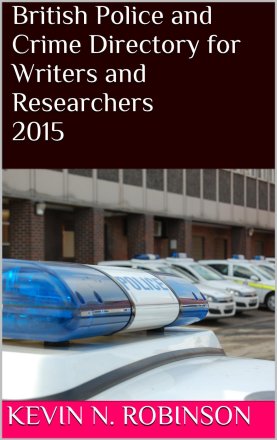You may have read about the 4 Professional Investigation Programme (PIP) levels and what constitutes Volumes and Priority crime along with who should be investigating these crime on my previous posts. If you missed them, catch up here: 4 PIP Levels You Need to Know About and 16 Crimes That Don’t Need a Detective.
Now I’m going to describe what a Serious Crime is and who is likely to lead such an investigation so that you can get the right character investigating the right type of crime in your stories.
Serious crime falls into PIP Level 2 and is defined in section 93(4) of the Police Act 1997 as:
Conduct which
(a) involves the use of violence, results in substantial financial gain or is conducted by a large number of persons in pursuit of a common purpose or
(b) the offence or one of the offences is an offence for which a person who has attained the age of twenty-one and has no previous convictions could reasonably be expected to be sentenced to imprisonment for a term of three years or more.
Schedule 1 to the Serious Crime Act 2007 lists a number of serious offences. Invariably these are offences which:
- involve the use of violence, including the use of weapons and firearms
- are sexual assaults
- result in substantial financial gain
- cause substantial financial loss to the victim
- are conducted by a large number of persons in pursuit of a common purpose.
The circumstances of each case will be considered and common sense applied as whether to categorise an incident as PIP level 2 crime.
The following offences may be categorised as serious and complex investigations:
- arson (intention to endanger life, or reckless action which could endanger life)
- abduction
- aggravated burglary dwelling
- aggravated burglary non-dwelling
- arson high value or life endangered
- blackmail
- drug trafficking
- death by dangerous driving
- fraud and associated offences (over 80 hrs investigation time)
- kidnapping (unless in major investigation category)
- perverting justice
- public order (racially motivated)
- rape
- robbery (firearms or actual bodily harm injury)
- child sex offences
- wounding (sections 18/20).
In most cases, a police constable will not be the sole or lead investigator in serious or complex crimes. It is generally the role of a Detective Constable to investigate this level of crime, supervised by a Detective Sergeant. The more complex the crime, the more detectives assigned to the investigation. More than 5 detectives generally means more Detective Sergeants supervising and two or more Detective Sergeants will probably mean that a Detective Inspector leads the investigative team.
So allocating a Detective Chief Inspector or Detective Superintendent to one of these investigations may be a little bit of overkill. Watch out for my next post to find out about just what they are likely to get involved in or if you can’t wait, you can always try to find the answers using your copy of the British Police and Crime Directory for Writers and Researchers or click on the picture below to buy your copy:
Hi Kevin, I have just returned from a two week trip to Turkey, during which I started to read your latest offering – the 217 tips. Almost immediately one of them – Special Constable – jumped out and hit me. I decided immediately to create the antagonist as a special rather than a regular constable, as I *imagine *they will have more control of their off duty time.
Would you be able to tell me a bit more about them please, for example, I want my man to be an under-employed vicar/priest in a remote rural village. Would he be able to say ‘I can come in at any time you wish, on three days a week?’ This would enable him to use the other days for both earning his living, *and *carrying out research for the crime. Or would this be totally unworkable? Any advice would be gratefully received.
Secondly, could you give me a bit more info on the police radio system – eg, how could a DC out on enquiries, contact his DI who is also out of the office. Does it work like a mobile phone where a simple number is dialled, or would it be that all calls go through to control who act as a telephonist on a switchboard.
I am looking forward to further reading of your book, but since my return, I have been struggling to get an internet connection through Sky whose new modem arrived the day before we left home. I think I have it now. Hope it stays accessible.
Best wishes, and thanks again,
Eric Ellard jericellard@gmail.com
LikeLike
Hi Eric, good to hear from you and an excellent idea. I have replied via e-mail to your questions.
LikeLike